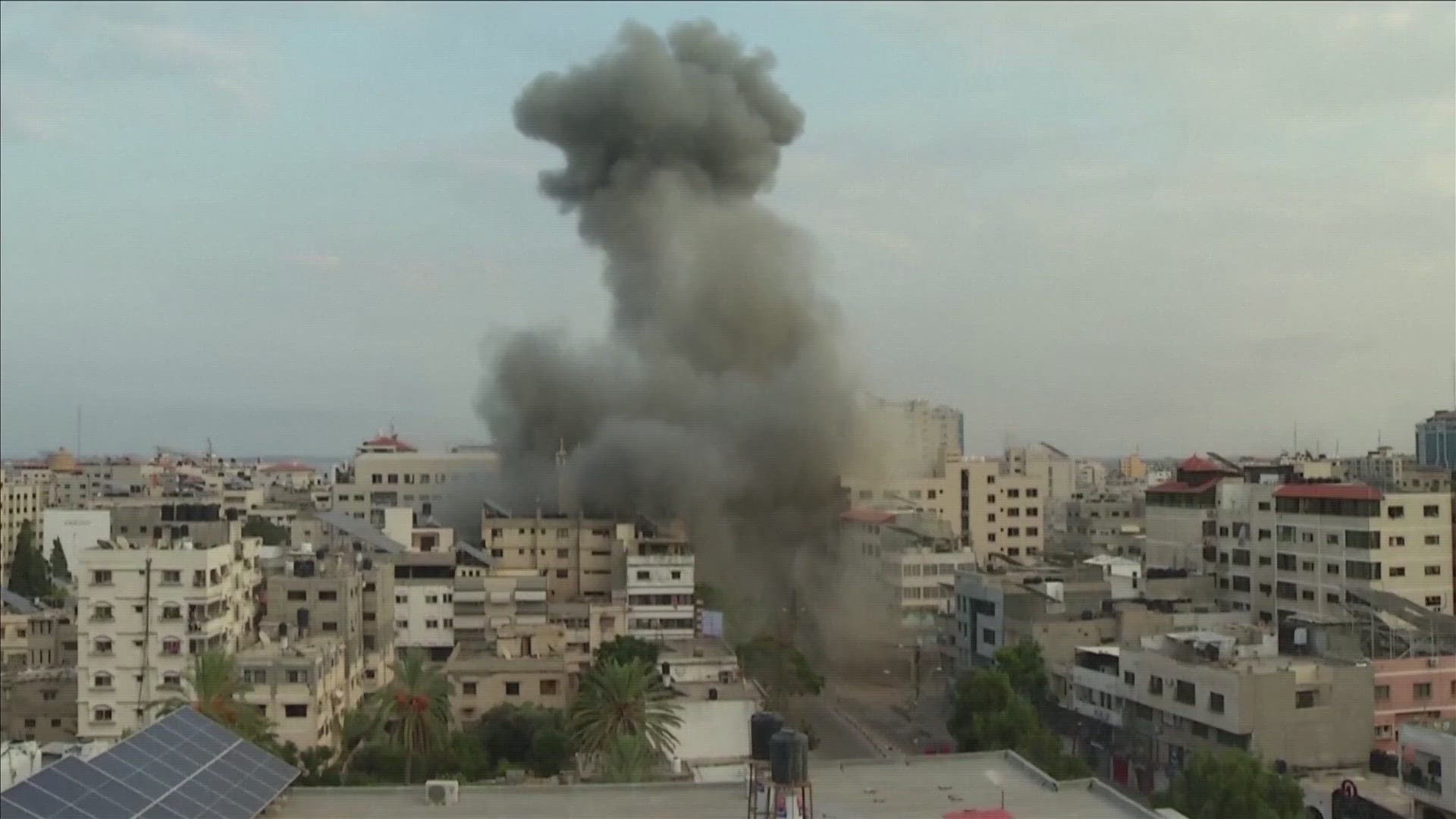MARYVILLE, Tenn. — Around 1,400 people died in the area of Israel and Palestine after Hamas, a Palestinian military group, launched an attack that caught Israel's military off guard. Following the attacks, Israeli leaders declared war and its military started intensely fighting in southern towns and bombarded the Gaza Strip.
"The fact that it caught Israel totally by surprise and has led to hundreds of deaths and thousands of wounded is pretty, is truly, it's been a terrible weekend terrible weekend of violence in the Middle East," said Mark O'Gorman, a professor of political science and environmental studies at Maryville College.
According to reports, the spokesman of Hamas' armed wing said the group would kill one Israeli civilian captive any time Israel targets civilians in their homes in Gaza “without prior warning.” O'Gorman said despite Hamas being placed on the U.S.'s list of terrorist organizations in 1997, Palestinians in Gaza voted for Hamas to speak for them in the mid-2000s.
As a result, he said there is a political side of Hamas that effectively speaks for Gaza on the Palestinian Legislative Council as well as a militaristic side that foments violence.
"You're talking about a five-by-20-mile strip of land along the southwestern coast of the Southern southwestern coast of Israel proper that houses two million people. It's an almost all Palestinians — an incredibly dense place that has basically been sectioned off and cordoned off by Israel since the mid-2000s," said O'Gorman. "I've heard some supporters of Palestine speak about this being the equivalent of an open-air prison for the past 15 or 16 years, without any type of attempt at peace by any side. It does not justify it, but it certainly provides some ability to understand why the violence that we might have seen over the weekend occurred."
Israel and Hamas have had repeated conflicts in past years, often sparked by tensions around a Jerusalem holy site. This time, the context has become potentially more explosive, and both sides talk of shattering with violence a years-long Israeli-Palestinian deadlock left by the moribund peace process.
The most recent attack tallies a death toll unseen since the 1973 war with Egypt and Syria. Israel is run by its most hard-right government ever, dominated by ministers who adamantly reject any Palestinian statehood. Hamas, in turn, says it is ready for a long battle to end an Israeli occupation it says is no longer tolerable.
"Israel has had to deal with violence throughout its lifetime. The 1967 War, the 1973 Yom Kippur War, which I mentioned, and also just different types of violence on its northern border, with Syria, and on its southern border with Egypt, in the past. More recently, what you've seen happen is the fact that we were actually seeing some overtures of peace," said O'Gorman. "Usually the Arab nations speak as one in terms of trying to find some settlement that solves both sides. But in recent years, you've seen countries like Egypt in the past and very recently, Saudi Arabia, beginning to kind of create their own independent kind of peace agreements with Israel."
He said this month marked 50 years since the Yom Kippur War when a surprise attack against Israel was launched from its northern and southern sides, with the scales of violence rising above this weekend's attacks. In the course of that war, the U.S. pledged to support Israel and supply military weapons and ammunition.
U.S. leaders announced Sunday that the country would send a carrier strike group to the Eastern Mediterranean in support of Israel.
"It's basically to saying to any allies of Hamas, 'The United States is here,'" said O'Gormon. "The big stick moving forward is to make sure that no other parties, no other Arab allies of Palestine or Hamas, get involved in this conflict."

